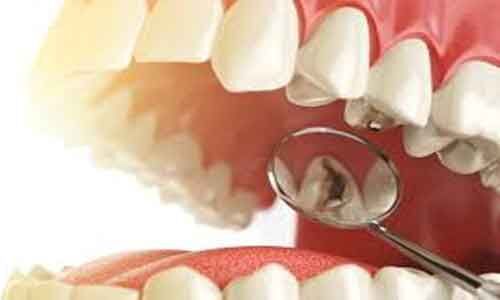- Home
- Medical news & Guidelines
- Anesthesiology
- Cardiology and CTVS
- Critical Care
- Dentistry
- Dermatology
- Diabetes and Endocrinology
- ENT
- Gastroenterology
- Medicine
- Nephrology
- Neurology
- Obstretics-Gynaecology
- Oncology
- Ophthalmology
- Orthopaedics
- Pediatrics-Neonatology
- Psychiatry
- Pulmonology
- Radiology
- Surgery
- Urology
- Laboratory Medicine
- Diet
- Nursing
- Paramedical
- Physiotherapy
- Health news
- Fact Check
- Bone Health Fact Check
- Brain Health Fact Check
- Cancer Related Fact Check
- Child Care Fact Check
- Dental and oral health fact check
- Diabetes and metabolic health fact check
- Diet and Nutrition Fact Check
- Eye and ENT Care Fact Check
- Fitness fact check
- Gut health fact check
- Heart health fact check
- Kidney health fact check
- Medical education fact check
- Men's health fact check
- Respiratory fact check
- Skin and hair care fact check
- Vaccine and Immunization fact check
- Women's health fact check
- AYUSH
- State News
- Andaman and Nicobar Islands
- Andhra Pradesh
- Arunachal Pradesh
- Assam
- Bihar
- Chandigarh
- Chattisgarh
- Dadra and Nagar Haveli
- Daman and Diu
- Delhi
- Goa
- Gujarat
- Haryana
- Himachal Pradesh
- Jammu & Kashmir
- Jharkhand
- Karnataka
- Kerala
- Ladakh
- Lakshadweep
- Madhya Pradesh
- Maharashtra
- Manipur
- Meghalaya
- Mizoram
- Nagaland
- Odisha
- Puducherry
- Punjab
- Rajasthan
- Sikkim
- Tamil Nadu
- Telangana
- Tripura
- Uttar Pradesh
- Uttrakhand
- West Bengal
- Medical Education
- Industry
Poor oral hygiene may be a significant risk factor for metabolic syndrome

Periodontists from the Department of Periodontology, Graduate School of Medical and Dental Sciences, Tokyo Medical and Dental University (TMDU), Tokyo, Japan have recently found that infection with the periodontal bacterium, Porphyromonas gingivalis (Pg) may be a risk factor for metabolic syndrome and metabolic dysfunction in skeletal muscle.
This study is published in the Journal of Federation of American Societies for Experimental Biology.
Skeletal muscles have a high metabolic capacity, which plays key roles in glucose metabolism. Although periodontal disease increases the risk of metabolic syndrome, the relationship between periodontal bacterial infection and skeletal muscle metabolic dysfunction is unclear.
Therefore, Kazuki Watanabe and colleagues conducted the present study that aimed to clarify the relationship between periodontal disease and MS. The authors further measured the titers of IgG antibodies against periodontopathic bacteria in MS patients and later investigated the influence of Porphyromonas gingivalis (Pg) infection on glucose metabolism, the gut microbiota, steatosis, and glucose uptake in murine skeletal muscle.
A total of 35 Japanese patients admitted to the Eguchi Hospital and Saga Medical School for the treatment of MS were enrolled for the study. MS was diagnosed based on waist circumference (as a measure of central obesity) ≥85 cm for men and ≥90 cm for women and/or a visceral fat area ≥100 cm2. Patient body mass index was calculated as the body weight in kilograms divided by the square of the height in meters (kg/m2). An abdominal computed tomography (CT) with the unenhanced spiral acquisition was also performed to calculate intramuscular adipose tissue content (IMAC) in the lumbar muscles.
The following were the key findings of this study-
a. Anti‐Porphyromonas gingivalis (Pg) antibody titers positively correlated with intramuscular adipose tissue content (IMAC), fasting blood glucose, and HOMA‐IR in metabolic syndrome patients.
b. In C57BL/6J mice fed a high‐fat diet, recipients of oral Pg (HFPg) had impaired glucose tolerance, insulin resistance and higher IMAC compared to recipients of saline (HFco).
c. The soleus muscle in HFPg mice exhibited fat infiltration and lower glucose uptake with higher Tnfa expression and lower insulin signaling than in HFco mice.
d. Gene set enrichment analysis showed that TNFα signaling via NFκB gene set was enriched in the soleus muscle of HFPg mice.
e. Moreover, TNF‐α also decreased glucose uptake in C2C12 myoblast cells in vitro.
f. Based on 16S rRNA sequencing, Pg administration altered the gut microbiome, particularly by decreasing the abundance of the genus Turicibacter.
g. The microbial network of the gut microbiome was dramatically changed by Pg administration.
Hence, the authors concluded that "infection with Pg is a risk factor for metabolic syndrome and skeletal muscle metabolic dysfunction via gut microbiome alteration indicating that periodontal bacteria induce insulin resistance and decrease glucose uptake in skeletal muscle by altering the gut microbiota."
For more information: Kazuki Watanabe et al, Porphyromonas gingivalis impairs glucose uptake in skeletal muscle associated with altering gut microbiota, The FASEB Journal (2020). DOI: 10.1096/fj.202001158R
Dr. Nandita Mohan is a practicing pediatric dentist with more than 5 years of clinical work experience. Along with this, she is equally interested in keeping herself up to date about the latest developments in the field of medicine and dentistry which is the driving force for her to be in association with Medical Dialogues. She also has her name attached with many publications; both national and international. She has pursued her BDS from Rajiv Gandhi University of Health Sciences, Bangalore and later went to enter her dream specialty (MDS) in the Department of Pedodontics and Preventive Dentistry from Pt. B.D. Sharma University of Health Sciences. Through all the years of experience, her core interest in learning something new has never stopped. She can be contacted at editorial@medicaldialogues.in. Contact no. 011-43720751
Dr Kamal Kant Kohli-MBBS, DTCD- a chest specialist with more than 30 years of practice and a flair for writing clinical articles, Dr Kamal Kant Kohli joined Medical Dialogues as a Chief Editor of Medical News. Besides writing articles, as an editor, he proofreads and verifies all the medical content published on Medical Dialogues including those coming from journals, studies,medical conferences,guidelines etc. Email: drkohli@medicaldialogues.in. Contact no. 011-43720751


